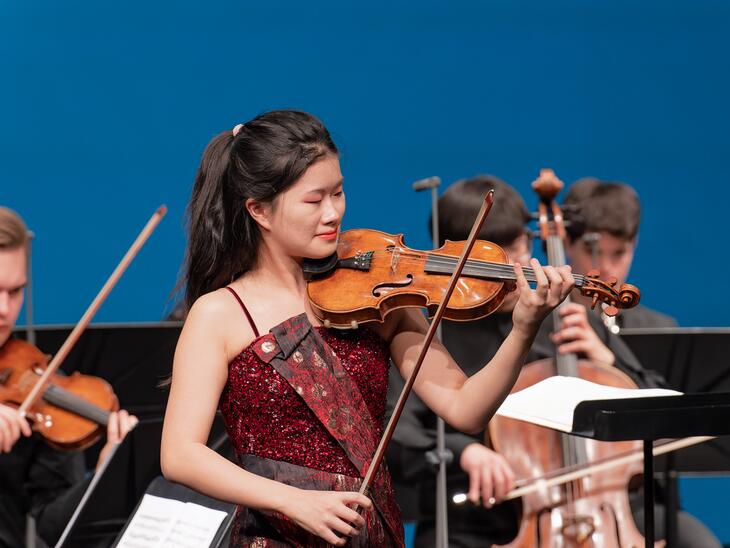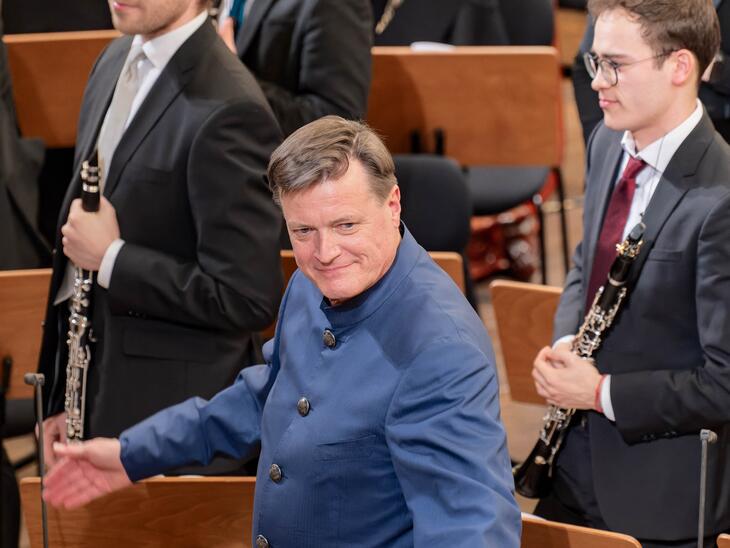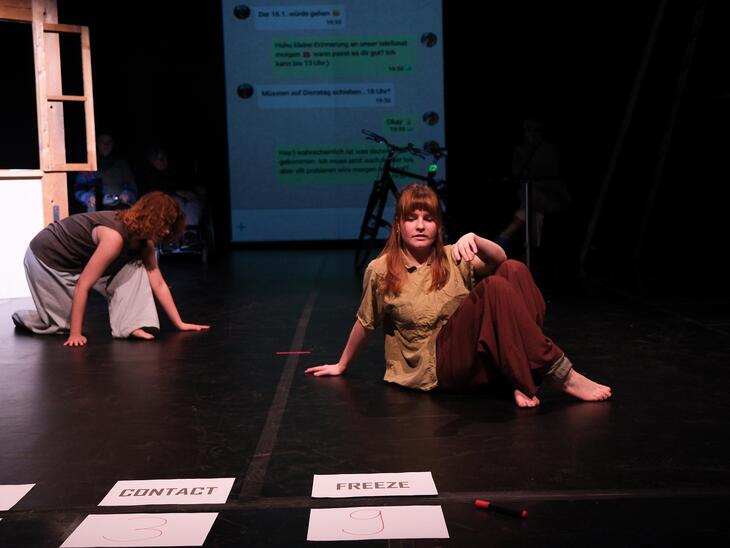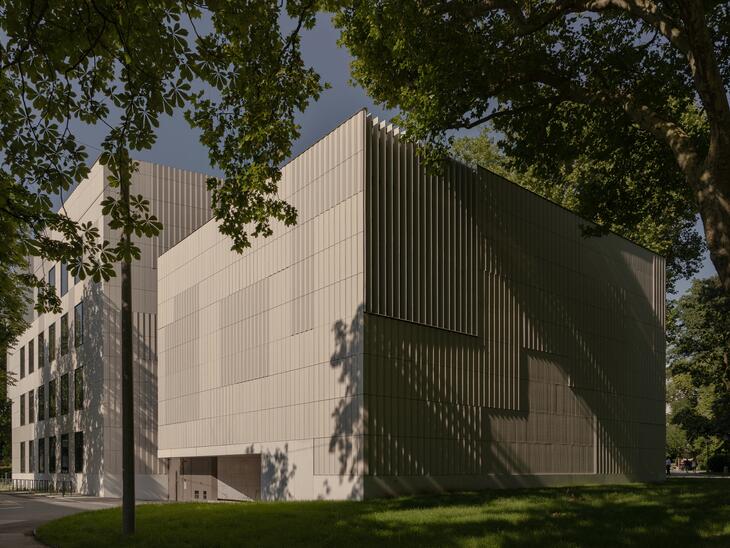
The Mystical Reality of Rosamund Gilmore
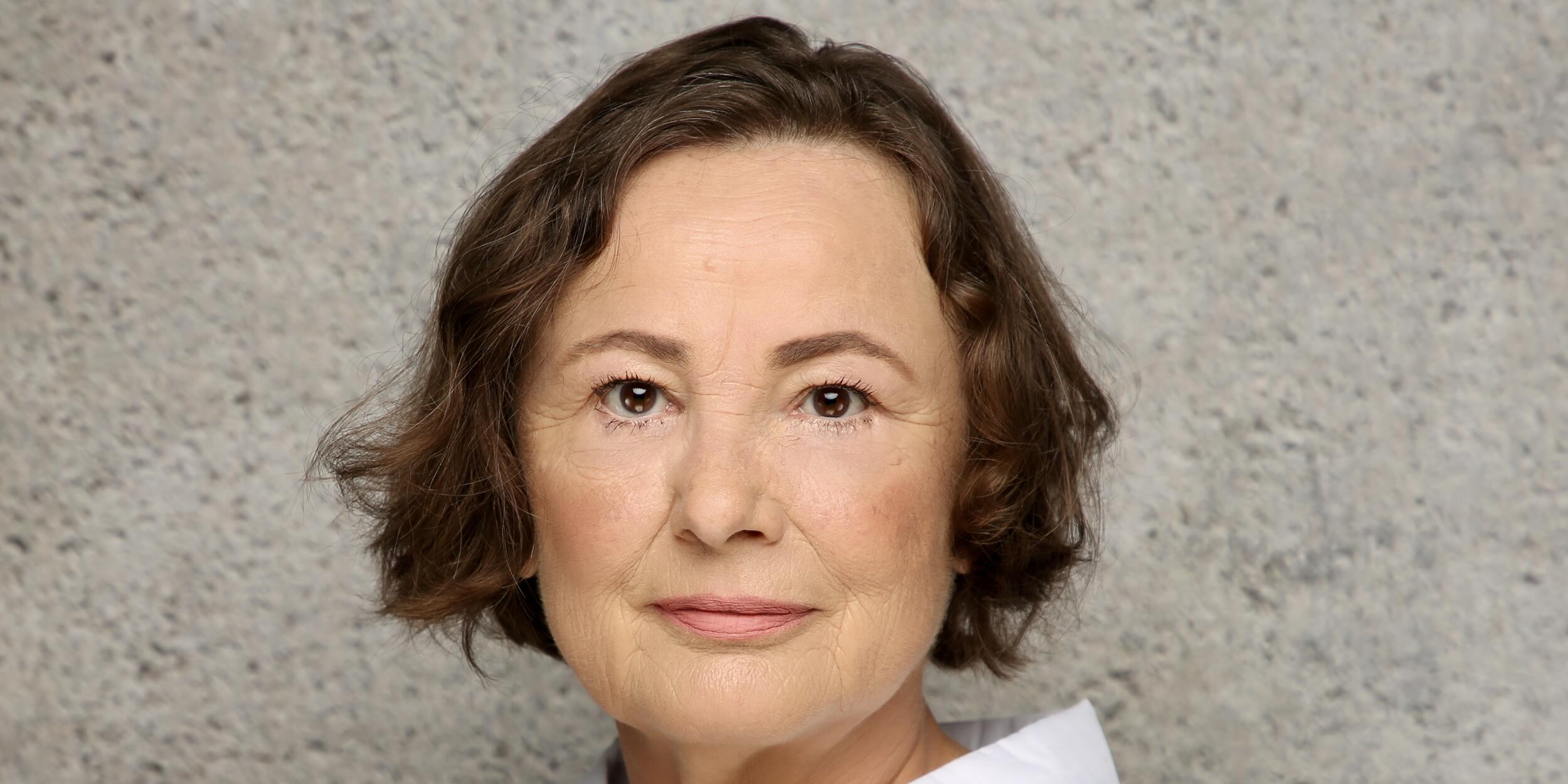
On December 15, the operetta "Orpheus in the Underworld" will be recorded at the Mozarteum University. A conversation with the renowned director Rosamund Gilmore about Jaques Offenbach, her first production at the house and her very own "style".
MO: In 1858, Jaques Offenbach wrote to his librettist Ludovic Halévy that the idea of making Olympus like our own Earth had always fascinated him. You too? Rosamund Gilmore: Offenbach certainly implemented this idea very lovingly and with great knowledge of human nature! Since the gods are an invention of man anyway, it naturally seems obvious that they have very human traits. The contrast between arrogance, perfection, status and what often goes on behind the scenes in families at the same time forms a delightful material. And that's what this play is about, in which people and their gods intermingle. In this respect, this idea also fascinates me, yes. (laughs) MO: "Orpheus in the Underworld" is your first opera production at the Mozarteum University. How did you set up the piece? Gilmore: The gods are in the middle of the action almost from the beginning to the end, even if they don't play a role in a scene at the moment - they observe and comment. The space is very open, you can see the orchestra and the gods are sitting in the audience. That is, we used the stage as a picture - great job by Jiale Zhu, by the way - but only to show situations and venues. The world of the gods is white and clean and heaven-like. Hades, on the other hand, shows up colorful, crazy, fantastic. As soon as the gods descend into the underworld, they naturally find pleasure in it, because in reality they are bored to death in heaven. And therein lies the Offenbachian persiflage. In general, everything seems very funny and ambiguous, which is probably a sign of the time in which Offenbach was writing. Sexuality is not really explicitly expressed, but certain words and expressions are so specifically placed that you know exactly what you are talking about. MO: How would you describe your work or your style? Gilmore : In general, there are really only two ways for directors* to direct: realistically and supposedly naturalistically, which often means simply placing characters in a "realistic" setting that the audience will recognize. Then there is a style of directing that works very conceptually and likes to turn the plot on its head to play with the psychology of the characters. It is mostly used by theater directors and is called director's theater. Yes, and then there's me. (laughs) Of course I have a style too, but I'm not a Bob Wilson who puts "Bob Wilson" on everything, even though he does beautiful, great things and that doesn't mean that every play is the same at all - his style, however, is always the same. In contrast, I don't project my style onto a piece. I rather use it on my way - of course coupled with that world view I just have. In any case, it suits me very well to tell a given story that on the one hand is understood by the people sitting in the auditorium, but at the same time lets them confront and reflect on themselves. In that sense, I take a little bit of everything and call it "Mystical Reality." There is always a realism in my productions and also the people are clearly recognizable, you can see their emotion. Nevertheless, this realism is usually on the brink and seems a bit skewed. The reality on stage has to fit the psychology of the characters. Something like that. (laughs) Anyway, I worked as a dance theater writer for 14 years. I know Gilmore - and therefore prefer to devote myself to others. I want to get to know Wagner or Mozart and try to explore their worlds and stay with them, even if they are filtered through me. It remains their works. MO: You trained in classical ballet and in 1979, together with composer Franz Hummel, founded the "Laokoon Dance Group," which you established with pieces such as "Egmont Trilogy," "B Minor Mass" and "Bluebeard." When did you first become interested in opera? Gilmore: Basically, I came to opera through well-known contemporary composers who kept asking me to direct for them. So one thing led to another and suddenly it was classical opera. In any case, whether in dance or opera, I always want people in my pictures who use their whole body. How does a person feel when he mourns a lost love? How does he stand, how does he walk, how does he sit? How is his expression … I think that is essential. Because the audience immediately feels authenticity and can read it. Also in my choreographic career, inspired by Pina Bausch, it was always about how far you can lower the dance to express the emotion in the dancer. Dance for me has never been decorative or athletic, although at the same time it is always athletic because dancers have to do incredibly strenuous things. To develop the same principle with opera singers I found immensely appealing. And this approach has often helped the singers a lot. MO: You are considered one of the most distinguished directors for the classical opera repertoire, especially for contemporary music theater. What distinguishes working at a university from working at repertory houses? Or in other words, what makes working with students appealing? Gilmore: The discipline and concentration among the students is fantastic, the enthusiasm high. They are eager to play, very open to my work and don't come with role models of how they want to be. Offenbach, of course, contributes to the great atmosphere we've had this semester. It is an operetta, a joyful piece with joyful voices. Anyway, I am thrilled with the class - they are reaching professional levels, no question! And grateful that they were able to go through the learning process of how a professional opera production goes from A-Z, despite Corona. Yes, and I also experience the collaboration with Kai Röhrig as great. He really works for the students. You just have to remember that singers are often under enormous pressure in a repertory house because they sometimes have to learn up to six roles in a season. Stage rehearsals are often done on the back burner, which I fully understand. It's great to work with fantastic singers who know their roles inside out, who have specialized - because you find real partners in them, and I enjoy that. Nevertheless, I enjoy having a little more leeway. And I need to be needed. Discovering a work together with students is something wonderful. (First published in the Uni-Nachrichten / Salzburger Nachrichten on December 11, 2021)
